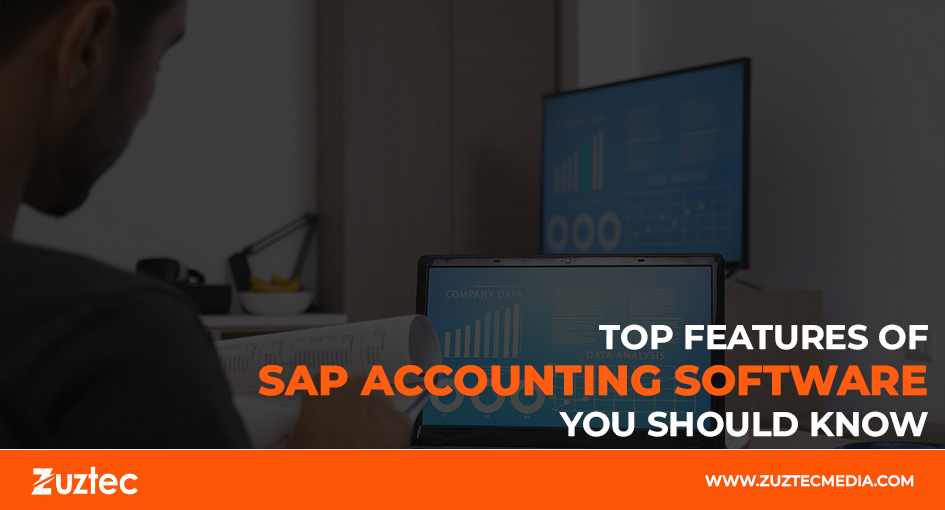
Top Features of SAP Accounting Software You Should Know
SAP accounting software is a powerful tool used by businesses worldwide to manage their financial operations with precision and efficiency. Designed to handle everything from basic bookkeeping to complex financial reporting, it offers a wide array of features that help companies streamline their accounting processes. Whether you’re managing accounts payable, accounts receivable, or financial statements, this software is known for its reliability and flexibility, making it a top choice for businesses of all sizes.
Its ability to integrate seamlessly with other SAP modules, handle multi-currency transactions, and provide real-time insights into financial data ensures that businesses can maintain transparency and compliance. With features like automated invoicing and financial forecasting, it simplifies complex tasks, allowing finance teams to focus on strategic decision-making and long-term financial planning.
This article explores the key features of SAP accounting software, including automated financial management and robust reporting tools. These features enhance productivity, ensure accuracy, and comply with industry standards. Understanding these functionalities can help businesses make informed decisions when choosing an accounting solution. Whether new to SAP or already used, this overview highlights the software’s potential to optimize financial workflows and benefit your business.
Features of SAP Accounting Software
1. Comprehensive Financial Management
One of the standout features of SAP accounting software is its comprehensive financial management capabilities. It enables businesses to manage all financial operations, from general ledger entries to accounts payable and receivable. SAP’s flexibility ensures that companies can easily handle diverse financial functions within a single platform. The software supports multi-currency transactions, enabling businesses with global operations to seamlessly manage international accounts.
Additionally, SAP’s real-time financial reporting feature allows businesses to access up-to-date financial data, which helps monitor cash flow, profitability, and overall financial health. This feature is particularly beneficial for large organizations that require detailed and accurate financial insights to drive strategic decision-making.
2. Integration with Other SAP Modules
One of the key advantages of it is its ability to integrate with other SAP modules, such as supply chain management, sales, and human resources. This integration ensures that financial data is synchronized across various departments, providing a unified view of the organization’s overall performance. By connecting the accounting software with other business processes, companies can achieve greater operational efficiency and eliminate the risk of data silos.
For instance, when a sale is made, the financial transaction is automatically recorded in the accounting system. Similarly, inventory and procurement costs are updated in real-time, which helps in accurately calculating the company’s expenses and profits. This integration reduces manual errors and increases productivity by streamlining cross-functional workflows.
3. Automated Invoicing and Payment Processing
Managing invoices and payments manually can be time-consuming and prone to errors. It offers automated invoicing and payment processing capabilities, which help businesses simplify these critical tasks. The software allows businesses to create and send invoices automatically based on predefined criteria, such as customer orders or project milestones.
SAP’s payment processing feature allows businesses to automate payment approvals, track payments, and manage cash flow more effectively. It reduces overdue payments, improves accounts receivable, and enhances accuracy, ensuring timely payments and healthy cash flow.
4. Robust Financial Reporting and Analytics
Another key feature of it is its powerful financial reporting and analytics tools. The software provides businesses with a wide range of customizable reports that offer detailed insights into financial performance, including income statements, balance sheets, and cash flow reports. These reports are essential for stakeholders who need to assess the organization’s financial standing and make informed decisions.
SAP provides advanced analytics capabilities for businesses, enabling tracking of KPIs and forecasting future trends. Its dashboards and graphs help visualize complex financial information, making it easier for decision-makers to understand and present it to executives and investors.
5. Scalability and Flexibility
It is known for its scalability, making it suitable for businesses of all sizes, from small enterprises to multinational corporations. As a company grows, its financial management needs become more complex, and SAP’s scalable architecture ensures that the software can handle increased transaction volumes and additional business processes.
SAP’s highly customizable software enables businesses to meet their specific requirements, including adding new modules, integrating third-party applications, and adapting to accounting regulations.
6. Compliance and Regulatory Support
Keeping up with changing regulations and accounting standards can be challenging for businesses. SAP accounting software is designed to help organizations comply with local and international accounting standards, such as GAAP and IFRS. The software includes features that automate the tracking and reporting of financial data by regulatory requirements, ensuring that businesses remain compliant and avoid costly penalties.
Moreover, SAP’s audit trail functionality allows businesses to maintain transparency and accountability in their financial records. Every financial transaction is recorded with detailed information about who made the entry, when it was made, and what changes were made. This feature is crucial for organizations undergoing financial audits or seeking to maintain high levels of corporate governance.
In conclusion ,in today’s fast-paced business environment, having a reliable and efficient accounting solution is essential for financial success. SAP accounting software stands out as a comprehensive and scalable tool that offers a wide range of features, including financial management, integration with other SAP modules, automated invoicing, robust reporting, scalability, and regulatory compliance. By leveraging these features, businesses can streamline their accounting processes, improve financial accuracy, and make more informed decisions.
Whether you’re a small business looking to manage your day-to-day finances or a large enterprise in need of advanced financial reporting, SAP accounting software provides the tools and capabilities to support your needs. Its ability to adapt to changing business requirements and integrate with other systems makes it a top choice for businesses aiming to achieve long-term financial success.

